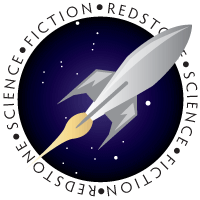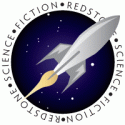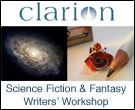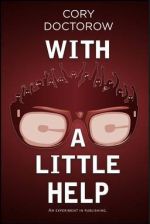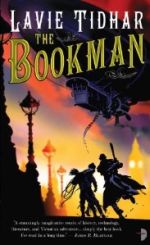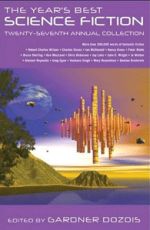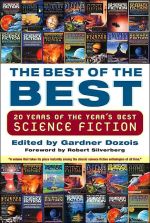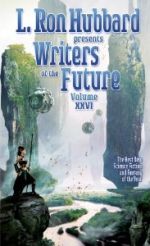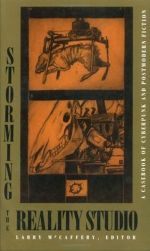Contest
Towards an Accessible Future
Congratulations for Nick Wood, the winner of our contest.
Nicks’s story was published September 1st in
Redstone SF #4.
Redstone Science Fiction called for contest submissions that incorporate the values discussed in the essay The Future Imperfect by Sarah Einstein.
What does a world, or space station, or whatever look like when it has been designed to be accessible to everyone and how would people live together there?
The submissions should portray disability as a simple fact, not as something to be overcome or something to explain why a character is evil. The submissions should also incorporate the portrayal of disability in a world where universal access is a shared cultural value. (Sarah discusses more issues about dealing with the setting of such a story in her July essay.)
The story chosen by Sarah Einstein and our editors will be published in our September issue.
Specifics:
The contest is closed to submissions.
The maximum word limit will be 5000 words.
The winner will be awarded $300 (at least 6 cents/word).
Use the manuscript formatting as outlined by William Shunn:
– Double spaced
– 12 pt. Courier New (or Times New Roman)
– 1″ borders
– Name, contact info, and word count at the top of page one
– Name, title, page number in header for the rest of the story
The email:
– in the subject line include: your full name and story title
– in the body include: your name, contact info, word count, and a short cover letter listing your publication history
– attach your story to the email in Rich Text Format (.rtf) or Microsoft Word (.doc) format
Submit to: accessible-future@redstonesciencefiction.com
Editors Update: There has been substantial discussion online about the story contest, at io9 and other sites. Sarah addressed some of the questions raised by the essay in a comment at io9 and we reprint that here:
Hello. I am the author of the call for stories, and I am hoping I can clear up some of the concern–though I also acknowledge that some of it is very valid, and that this is a fraught topic.
The goal of the contest is to get entries which are focused specifically on universal design and the possibilities for creating enabling environments with future tech. The winning story could, indeed, have no people with visible disabilities as a result of a truly well-realized version of U.D., though that would be masterful to do without erasing the issues of embodiment and disability. I don’t believe I could write that story, but am open to the possibility that someone else could. It could also include one or many characters who very much still experience pain, limitation, and/or issues performing daily living skills even in a largely U.D. environment–in fact, the U.D. could free the writer to explore issues of disability that are wholly embodied and not culturally determined, which would be very interesting indeed in the hands of someone very skilled and with enough personal insight into those issues to put a whole lot of truth into the fiction.
Here is what we aren’t looking for:
–stories in which the character(s)’ heroism or villainy is explained by disability. They can be heroes or villains, but their motivation must come be something other than being either what Robert McRuer calls a “supercrip” or the equally difficult “evil guy who is bitter because of his disability” trope.
–stories about bionics or cybernetics that don’t also include changes to the environment. Instead, we want stories that alter shared space–rather than simply individual embodiment–as a way to create fully inclusive communities. Characters can, of course, use a variety of future tech assistive devices, but it shouldn’t be the whole of the way future tech accommodates a wider variety of embodies experiences than current tech.
–stories in which accommodations and/or assistive technologies are only granted to the particularly heroic or diabolical. (See the problematic issue of rewarding promise with disembodiment and slavery in The Ship Who Sang for an example of this.) If the future tech is unevenly distributed, it should be for more likely reasons–the availability of expensive technology only to the very wealthy, the very politically connected, or some other example that demonstrates the current inequity of accommodating technologies.
–stories which fail, themselves, to embrace the ideals of Universal Design and use disability to signify anything other than disability.I hope this helps, though it is always a fraught process to encourage people to think about only one aspect of an issue, and I fully acknowledge that this contest does that. But any additional constraints on the content seemed to me to limit the authors’ who enter from creating possible futures that I am unable to see.
To answer timetowakeup’s question, which I hope will answer many similar questions, we are not looking for stories which ERASE disability, we are looking for ones which ACCOMMODATE it. The characters may still experience limits, may have to do things in alternate ways, may deal with pain and limitations that are not created by culturally defined barriers.
I hope this helps, and I will be happy to address any other questions and/or suggestions.
Sarah Einstein
We are proud to have Sarah’s essay and contest here at Redstone Science Fiction and we are looking forward to accepting submissions. Feel free to comment on the essay, The Future Imperfect, if you have any questions.

